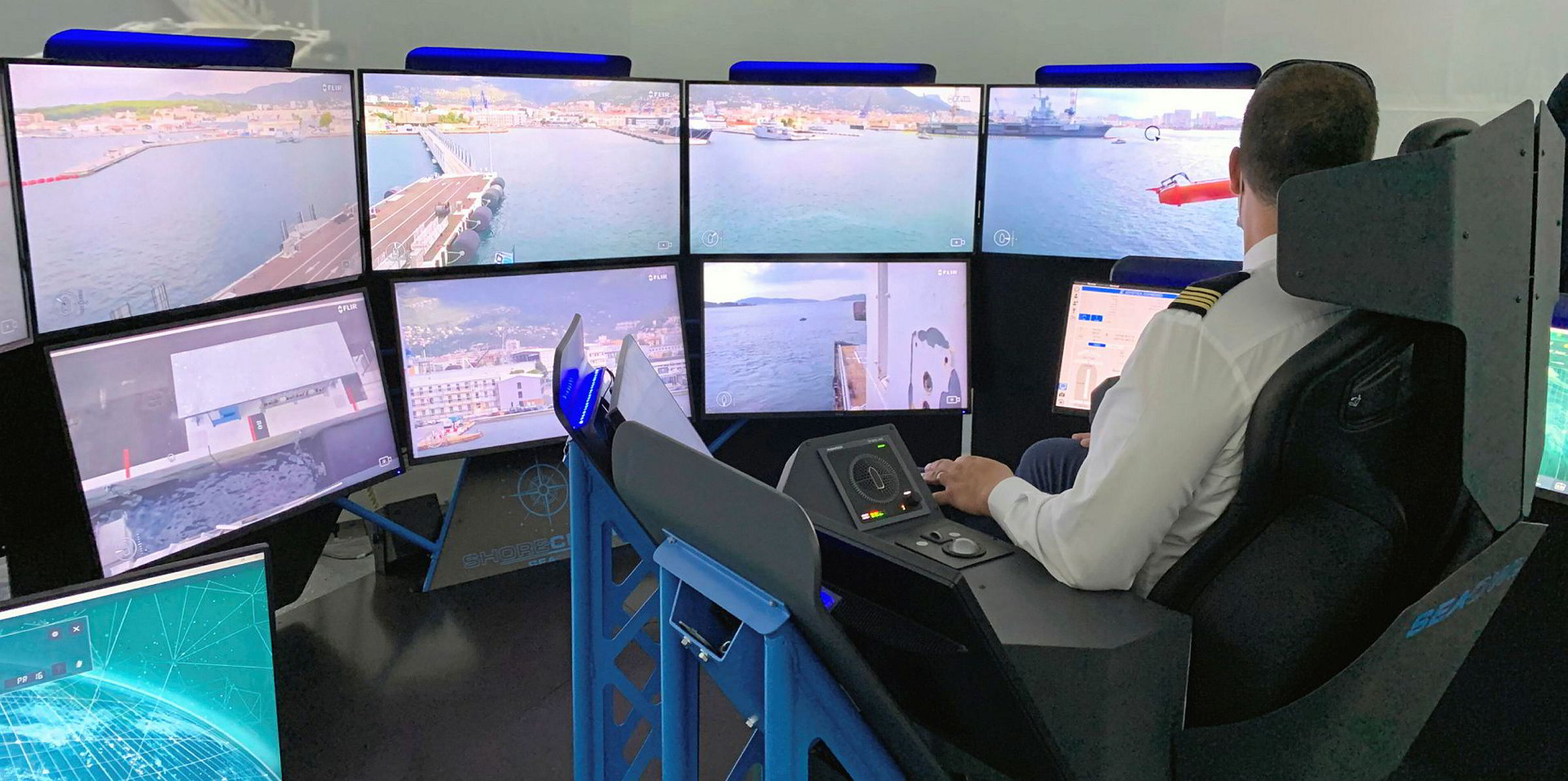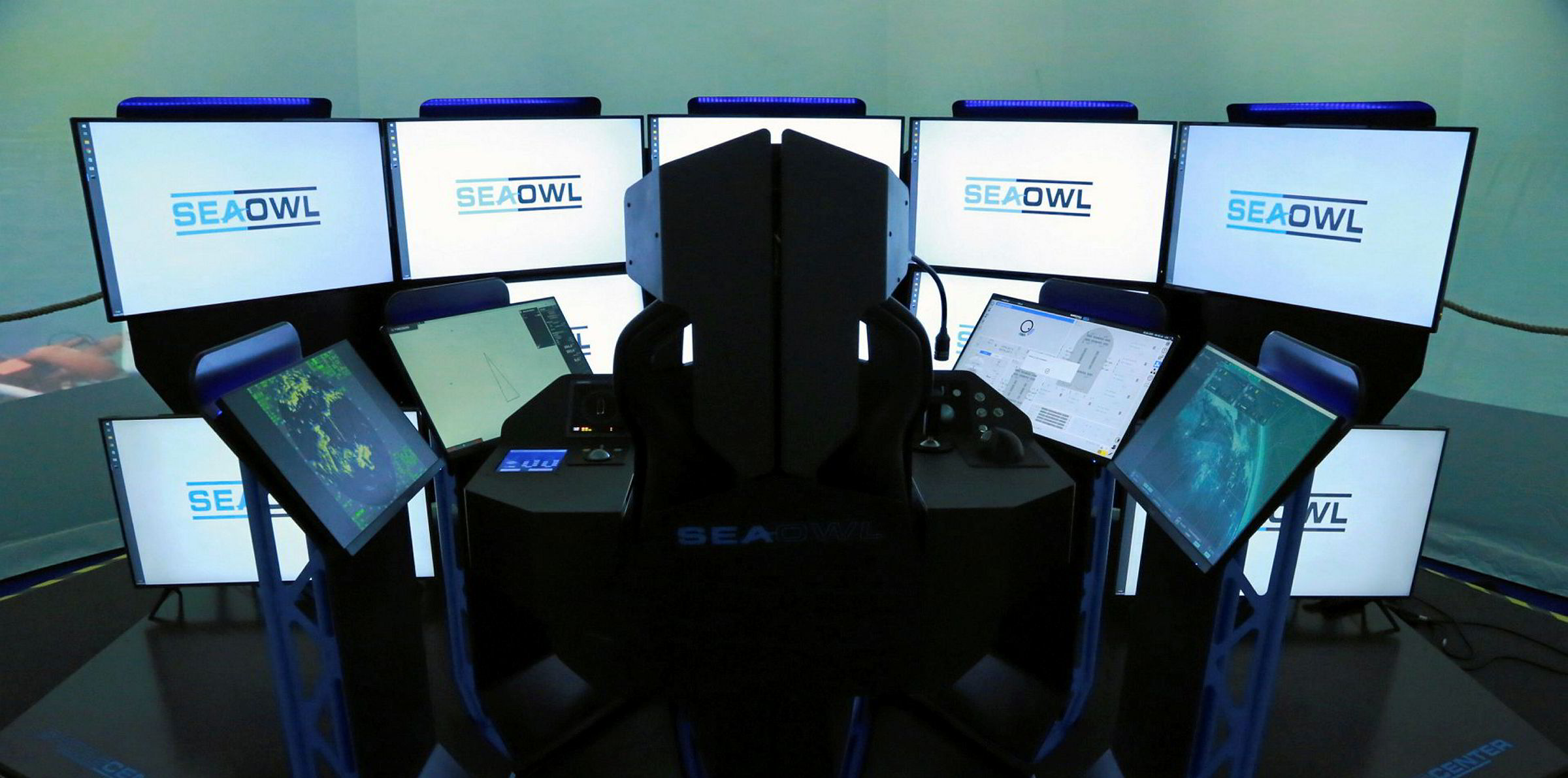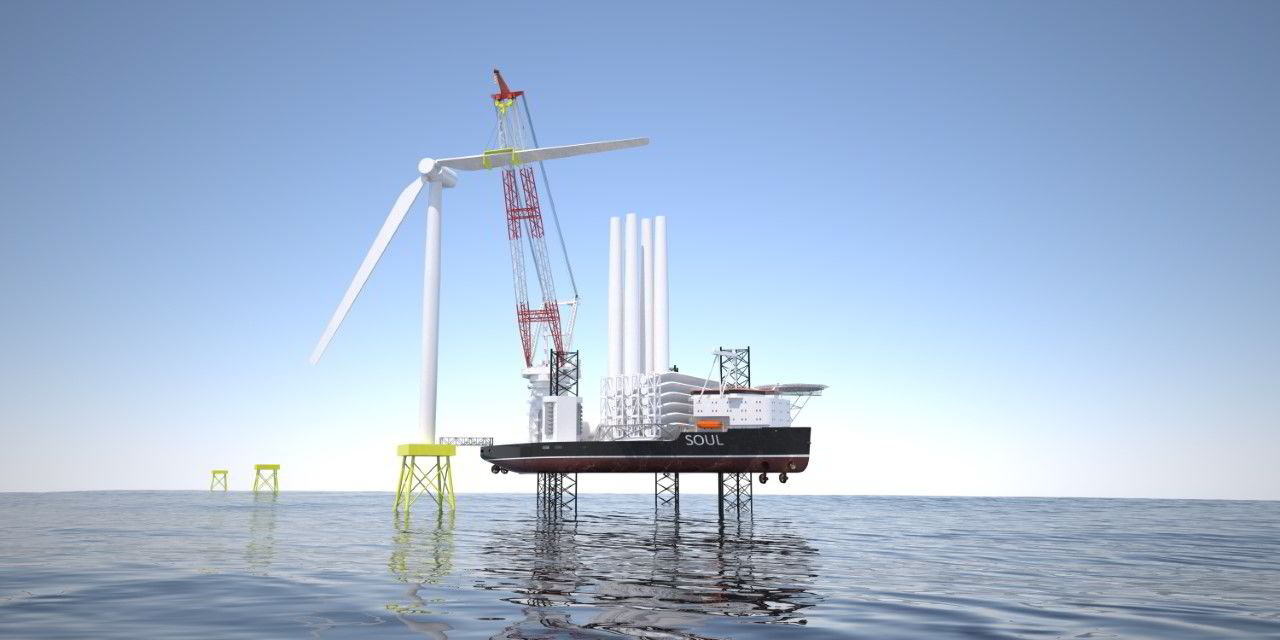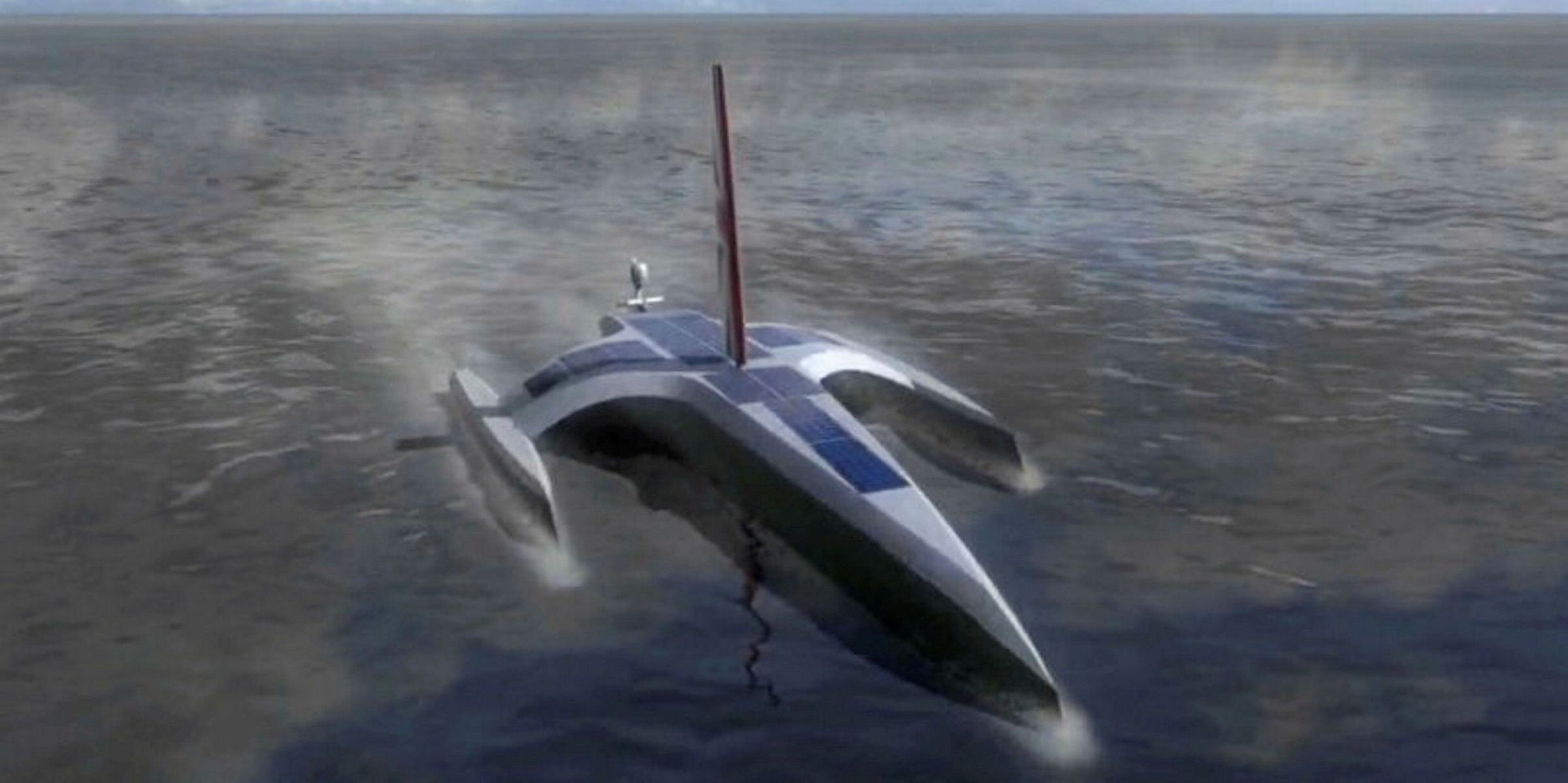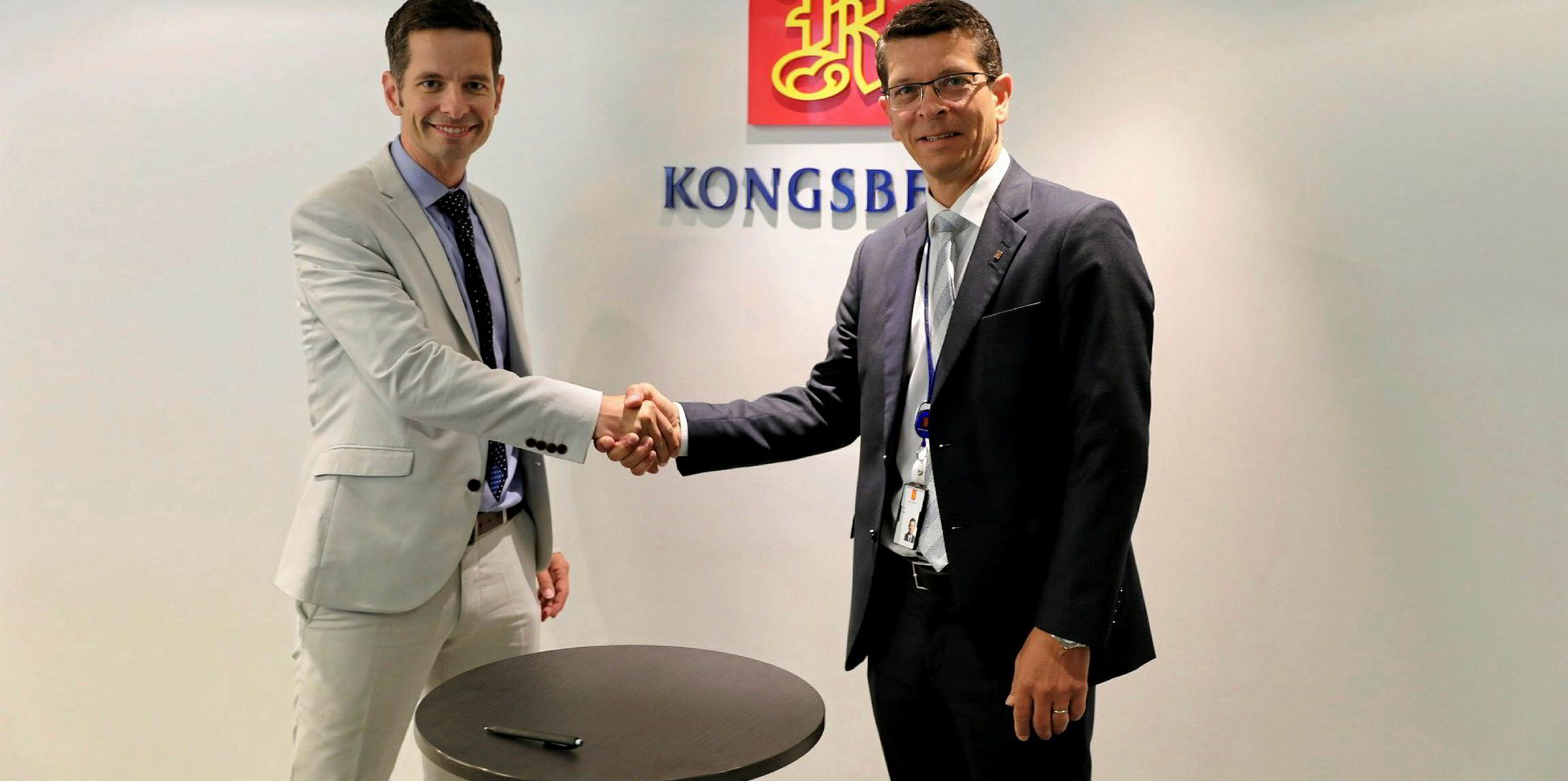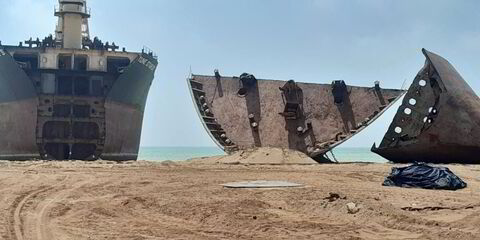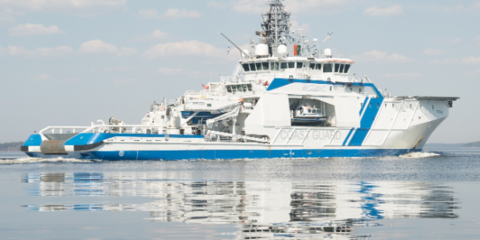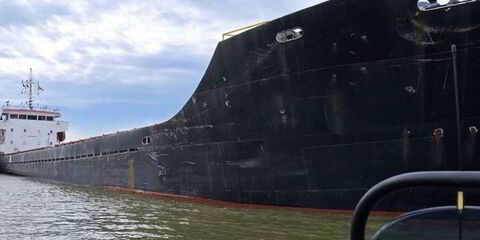France’s Seaowl Group has taken initial steps to introduce autonomous shipping to the offshore services sector — but it will be years before its grand vision can be fully realised.
Backed by the French Environment and Energy Management Agency, the Paris-based company is developing the prototype of a remotely operated ship powered by battery technology.
With a length of between 25 and 30 metres, a width of eight to 10 metres and a draught of two metres, the vessel can perform underwater inspections of oil and gas fields and windcfarms.
Seaowl managing director Vincent Boutteau expressed strong confidence in his company’s vessel concepts when he spoke to TradeWinds.
“The main benefits are to reduce the risk exposure for the staff and the carbon footprint for the vessel, increase the flexibility of the services and reduce the cost,” Boutteau said.
He added that autonomous vessels can be especially suited for operating in high-risk areas prone to piracy attacks.
“Sometimes when you are operating in dangerous zones, the people are at risk,” Boutteau said. “It cost a lot of money to send people and get them back.”
Due to its power system, Boutteau envisages that the ship will be operating around floating energy facilities — such as a floating LNG unit or a floating production, storage and offloading vessel.
“It can go very far, but it needs to be close to an energy source in order to be recharged,” Boutteau said.
Overcoming challenges
The overall development of autonomous shipping is in its infancy. There have been just a handful of trials of small, remotely controlled ferries — and similar efforts in the offshore sector are even more limited.
Citing his company’s example, Boutteau said the challenges mainly lie in regulatory compliance and evaluating operational risks.
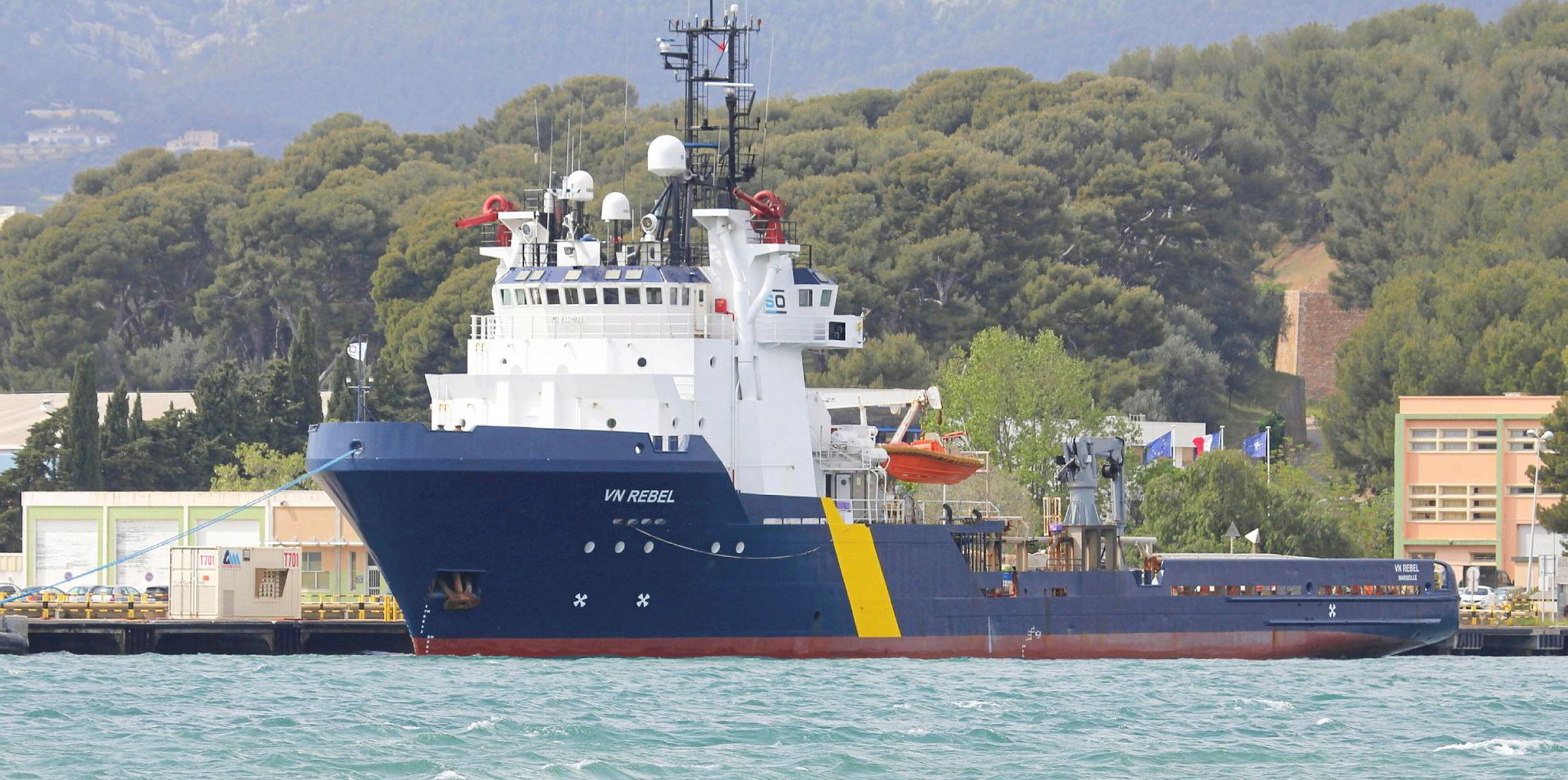
“There are more integration and testing challenges than research and development challenges,” Boutteau said. “Most of the navigation functions are already partially automated.”
Seaowl has worked closely with Bureau Veritas and the French Ministry for the Sea on the Remotely Operated Services at Sea project, the technical expertise of which would be applied to its autonomous ship.
In September, the company successfully demonstrated its capability to strategic partners including French energy major Total. A Paris-based Seaowl captain managed to take full remote control of the 12,000-bhp anchor handling tug supply vessel VN Rebel (built 1984) when it was navigating off the Mediterranean city of Toulon.
Moreover, the trial was carried out with the required licence from the French flag, in compliance with the International Maritime Organization’s interim guidelines for the trial of Maritime Autonomous Surface Ships.
An unmanned ship operated entirely from another location cannot tolerate loss of connectivity as it would then be out of control.
To solve this issue, Seaowl has partnered with Marlink, which provides a VSAT-based, high-speed network connectivity system to the project.
Boutteau said his company also devoted lots of effort to creating robust cyber security architecture, and he stressed that good practice would be essential in fending off any attacks.
“You will never be able to guarantee that there won’t be any intrusion,” he said. “You need to be resilient to intrusion.”
Boutteau added that all systems on board will need to operate with each other, yet at the same time they need to stay “siloed”.
“If one system or one subsystem is contaminated, the others will still be functional,” he said.
Future plan
Seaowl is still finalising its prototype design in terms of energy system. It has been in discussions with some French shipyards and could place a newbuilding order soon.
“The target is to build the first prototype within two years,” Boutteau said. “We plan to start the construction maybe in six months.”
Seaowl hopes to fetch a multi-year service contract for the ship. Once the concept is proved commercially and technically viable, the company plans to build about 20 such vessels between 2023 and 2028.
“We don’t plan to contract with one shipyard for the 20 ships now,” Boutteau said. “It’s a step-by-step project.
“We don't have the funding for the 20 yet. So, we prefer to focus on the first one.”(Copyright)
